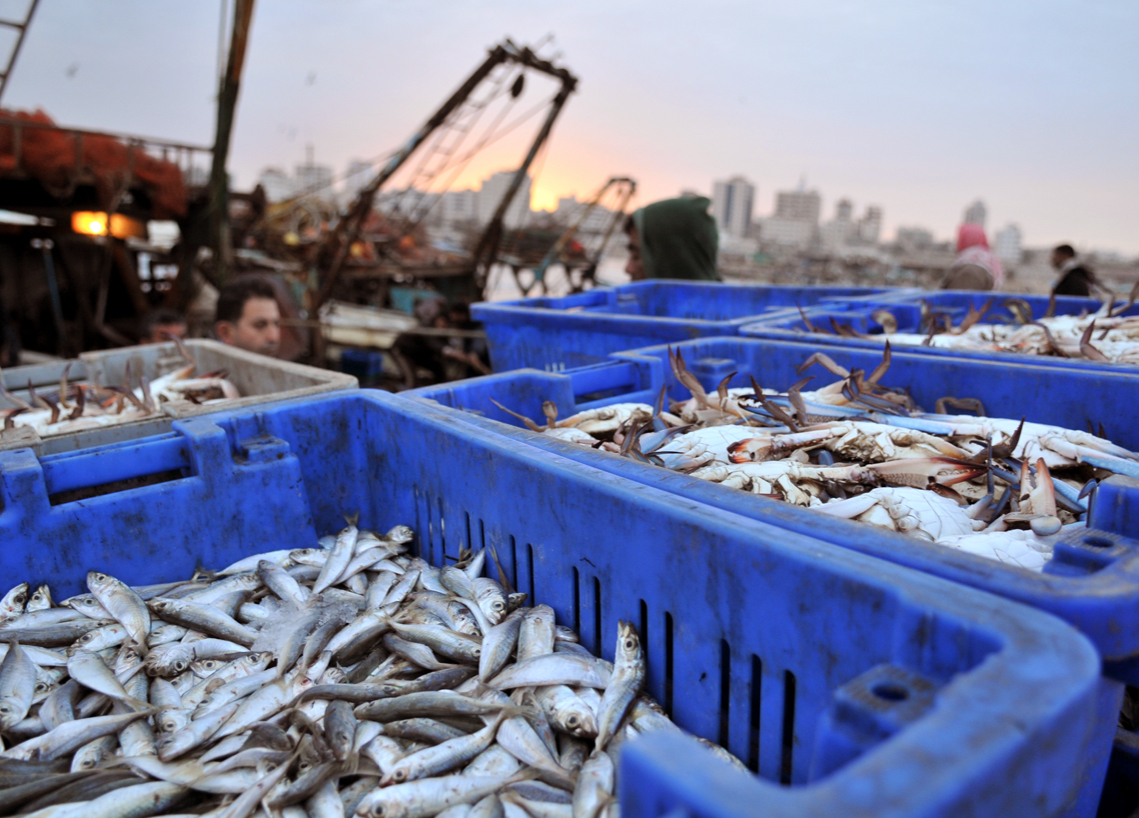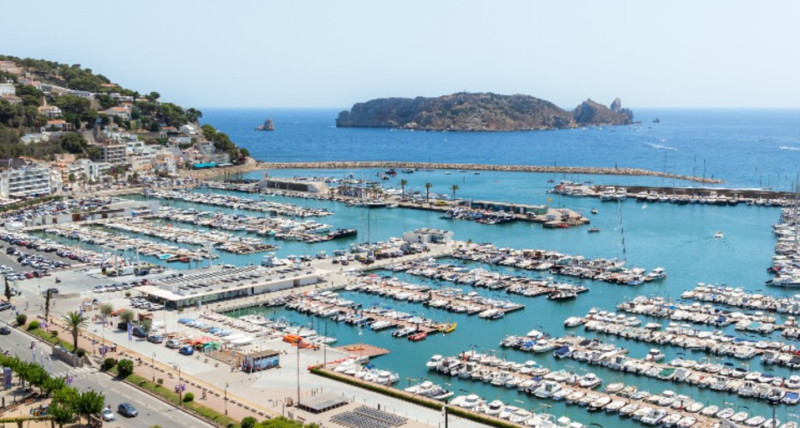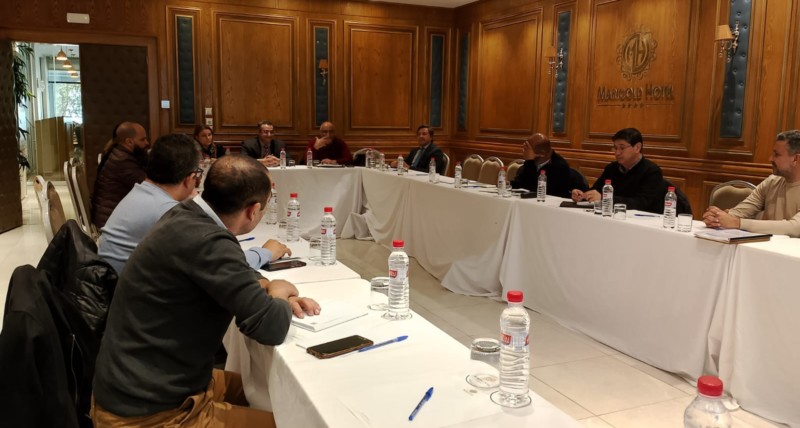MedWaves supports the entire Mediterranean region to move forward on a path of sustainability. Given the number of coastal countries, special attention should be paid to the blue economy. The blue economy involves many sectors, including coastal tourism, port activity, maritime transport, fishing and industry. These sectors constitute fundamental economic components and booming markets for countries.
The development of offshore and associated activities has reinforced the environmental difficulties faced by marine and coastal ecosystems in the region. These challenges include CO2 emissions associated with tourism, ports and shipping; depletion of fish stocks; as well as marine litter and marine pollution. These impacts alone constitute a signal that change is necessary.
Although the Mediterranean enjoys strong blue economic growth, part of its potential remains untapped. The European Union and other regional intergovernmental organizations, such as the Mediterranean Action Plan/UN Barcelona Convention for the Environment and the Union for the Mediterranean (UfM), are paying increasing attention to the urgency to act and put an end to unsustainable development patterns in these sectors. Together, these institutions have developed and coordinated strategies towards a sustainable blue economy.
A sustainable blue economy encompasses all economic activities that use the sea and/or continental waters (rivers, streams and lakes), directly or indirectly. MedWaves believes that the sustainable blue economy helps blue economy actors use the principles of circular commerce: Exclude waste and pollution by design; Maintain products and materials in service; and regenerate natural systems.
A sustainable blue economy encompasses the potential to develop sustainable businesses located in maritime areas and inland waters, as well as others located in coastal areas or in areas far from the coast, if linked to the sea or continental waters. The sustainable blue economy involves the existence of sustainable businesses that provide business solutions, create ecological value and/or protect the environment, are economically viable, respond to environmental challenges and are inclusive. These businesses provide long-term economic and social benefits while protecting and restoring the diversity, productivity and resilience of aquatic and coastal ecosystems.
Innovation is at the center of the transition to a sustainable blue economy. To achieve this, this approach requires a profound transformation of all economic sectors in order to abandon linear models in favor of circular models. It is possible to improve existing production processes, as well as introduce new sustainable business models and new economic structures in order to reconcile economic development and the health of marine and coastal ecosystems. Robust policies and regulations promoting the integration of circular economy principles across all blue economy business models will help achieve this transformation.
The Switchers support program promotes a sustainable blue economy through support for the adoption of a systemic and holistic approach. This involves several stakeholders, including the following:
Entrepreneurs and SMEs: businesses of all sizes can turn to sustainable business models by adopting circular economic approaches based on eco-innovation. These business solutions transform ecological challenges into economic opportunities, thereby reducing ecological impact and creating social value.
– Business Support Organizations (BSOs) and experts: These entities can play an important role in helping entrepreneurs and businesses by providing support services integrated into eco-innovation and ecodesign approaches.
– Civil society and consumers: through their purchases, consumers have the power to vote for the products in which they believe. Through awareness of sustainable living, civil society and consumers can use their purchasing power to demand the change they want and drive the success of sustainable products and services.
– Universities and research institutions: these institutions disseminate knowledge and broaden the scope of possibilities, a necessary approach to successfully deploy circular economies, SCP and sustainable business models.
– Financial actors: grants, credits and investments can bring solutions to life, support innovation and generate results.
– Policies: Policy makers are responsible for adopting and implementing regulatory mechanisms that promote sustainable business models and sustainable products and services.

Promoting a sustainable blue economy is a priority for MedWaves. Circular economy principles within blue economy sectors are integrated into most initiatives and projects. For example, MedWaves supports the integration of themes and initiatives associated with the sustainable blue economy into the work programs of UNEP/MAP and the Barcelona Convention. MedWaves’ initiative to promote ecosystems favorable to sustainable businesses, namely the Switchers Support Program, is aimed at entrepreneurs and SMEs in the blue economy sectors.
The sustainable blue economy is a key concept integrated into the SwitchMed initiative, whose main actions are as follows:
assess opportunities for sustainable entrepreneurs in blue economy sectors;
develop methodologies and tools for the development of sustainable businesses in the blue economy sectors;
provide business support services for entrepreneurs and start-ups in the sustainable blue economy;
build and strengthen capacity to enable the sustainable blue economy to target key stakeholders, such as entrepreneurs, SMEs, business support organizations and policy makers;
assess relevant policies and initiatives for the blue economy, and identify opportunities and strategies to integrate circular economy principles into blue economy sectors;
promote policy measures supporting the integration of circular economy principles into traditional and emerging blue economy sectors;
integrate circular economy principles into relevant blue economy sectors within the framework of UNEP/MAP and Barcelona Convention action plans and strategies;
promote dialogue and shared visions between Mediterranean initiatives and stakeholders at national and regional scale; And
reward businesses and policymakers who successfully promote the sustainable blue economy.
Our stakeholders
The Switchers support program promotes a sustainable blue economy through support for the adoption of a systemic and holistic approach. This involves several stakeholders, including the following:
Entrepreneurs and SMEs: businesses of all sizes can turn to sustainable business models by adopting circular economic approaches based on eco-innovation. These business solutions transform ecological challenges into economic opportunities, thereby reducing ecological impact and creating social value.
Business Support Organizations (BSOs) and experts: These entities can play an important role in helping entrepreneurs and businesses by providing support services integrated into eco-innovation and ecodesign approaches.
Civil society and consumers: through their purchases, consumers have the power to vote for the products in which they believe. Through awareness of sustainable living, civil society and consumers can use their purchasing power to demand the change they want and drive the success of sustainable products and services.
Universities and research institutions: these institutions disseminate knowledge and broaden the scope of possibilities, a necessary approach to successfully deploy circular economies, SCP and sustainable business models.
Financial actors: grants, credits and investments can bring solutions to life, support innovation and generate results.
Policies: Policy makers are responsible for adopting and implementing regulatory mechanisms that promote sustainable business models and sustainable products and services.
Key actions
Promoting a sustainable blue economy is a priority for MedWaves. Circular economy principles within blue economy sectors are integrated into most initiatives and projects. For example, MedWaves supports the integration of themes and initiatives associated with the sustainable blue economy into the work programs of UNEP/MAP and the Barcelona Convention. MedWaves’ initiative to promote ecosystems favorable to sustainable businesses, namely the Switchers Support Program, is aimed at entrepreneurs and SMEs in the blue economy sectors.
The sustainable blue economy is a key concept integrated into the SwitchMed initiative, whose main actions are as follows:
assess opportunities for sustainable entrepreneurs in blue economy sectors;
develop methodologies and tools for the development of sustainable businesses in the blue economy sectors;
provide business support services for entrepreneurs and start-ups in the sustainable blue economy;
build and strengthen capacity to enable the sustainable blue economy to target key stakeholders, such as entrepreneurs, SMEs, business support organizations and policy makers;
assess relevant policies and initiatives for the blue economy, and identify opportunities and strategies to integrate circular economy principles into blue economy sectors;
promote policy measures supporting the integration of circular economy principles into traditional and emerging blue economy sectors;
integrate circular economy principles into relevant blue economy sectors within the framework of UNEP/MAP and Barcelona Convention action plans and strategies;
promote dialogue and shared visions between Mediterranean initiatives and stakeholders at national and regional scale; And
reward businesses and policymakers who successfully promote the sustainable blue economy.




